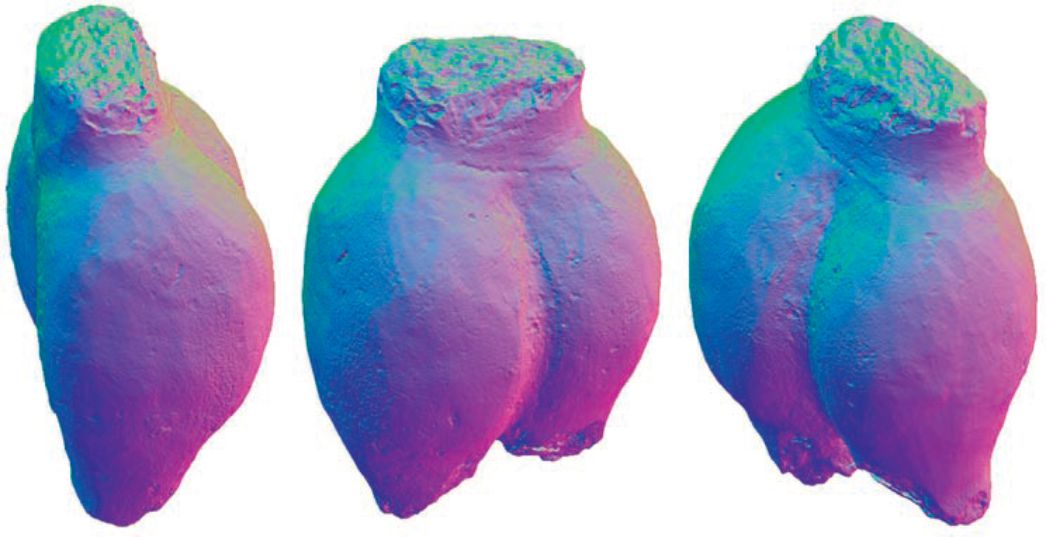Neolithic ceramic figurines
Several approaches to analytical study of the ceramic artefacts perceived as cultural heritage
DOI:
https://doi.org/10.35686/AR.2020.13Keywords:
Neolithic, ceramic figurines, use-wear analysis, 3D analysis, semidestructive analyses, mass composition and shapingAbstract
The article aims to present the results of the analysis of eight Neolithic ceramic figurines from the Lengyel culture settlement Těšetice-Kyjovice – Sutny, Czech Republic. We indicated the possibilities for acquiring analytical data, although destructive methods were unacceptable. We included methods neglected to date, but widely available in the common archaeological laboratory. Information on the composition of the ceramic matrix, the provenance of inclusions, the techniques used for shaping, firing, operating and discarding are all of key importance for advancing the discussion on the interpretational potential of ceramic anthropomorphic figurines from typological and religionist discourses to analytically-focused discussions supported by hard data. Two serious factors have thus far prevented the widespread use of analytical methods: the destructive nature of the evidential analyses, which is contradictory to heritage protection and general awareness of the value and rarity of such finds. The second factor relates to the prohibitive cost of analyses when applied to a statistically robust number of samples. On the other hand, in the absence of broad mapping of measurable data, we will remain dependent on only individually published analyses of isolated samples, typically from a different culture, period or geographical territory. We believe the use of non- and semi-destructive methods offers a solution. With the aim of achieving the lowest destructive impact, we conducted an analysis of eight ceramic figurines by use-wear analysis, high resolution 3D analysis, portable-X-ray fluorescence (p-XRF) measurements and microscopy of polished sections.
Downloads

Downloads
Additional Files
Published
How to Cite
Issue
Section
License
Copyright (c) 2020 Ludmila Kaňáková, David Hons, Vojtěch Nosek, Peter Tóth, Patrik Urban

This work is licensed under a Creative Commons Attribution 4.0 International License.










